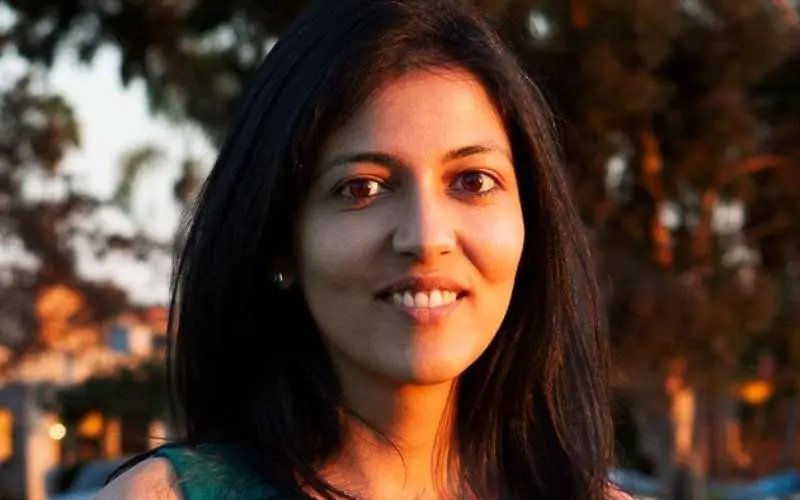Daughter of ex-RAW officer tries to be a brown sepoy, but gets canceled by Liberals


Recently, University of California, San Diego’s Critical Gender Studies Program disaffiliated an Indian scholar for being dishonest with kashmiri subjects, stating that she had engaged in a serious ethical and political breach in her research practices. The Indian scholar happens to be Dr. Saiba Varma, Associate Professor in the Anthropology Department and a former CGS Executive Committee member and Faculty Affiliate.
CGS Executive Committee said: “… A letter signed by “dominant caste Indian scholars, other concerned scholars, and everyone in solidarity with colonized people of Kashmir” to the publisher of Dr. Varma’s book in the US, Duke University Press, outlines the unethical nature of her scholarship and brings up one often obfuscated topic: that of caste and colonialism in scholarship on South Asia broadly and Kashmir specifically. The letter addresses “the ethics and politics of an upper caste Indian anthropologist who conducted research in Kashmiri clinics, demanded they speak in Urdu/Hindi (colonizers’ language) for their trauma to be translated in ways she could understand and then cultivated their stories of trauma from occupation for her book.” They emphasize that to work, as Dr. Varma did, “so unethically in Kashmir, on Kashmir, and moreover at the site of psychiatric clinics where traumatized Kashmiris might have harboured some hope of getting any support for their mental health…is not simply irresponsible scholarship and callous neglect about one’s own positionality…It is harmful scholarship.”
The statement added: “We also believe that Varma’s unrelentingly violent decision to work in this place, where the colonial Indian state intelligence apparatus had appointed her father (formerly a high-ranking official of the Research and Analysis Wing (RAW), the highest intelligence agency of India and architect of torture, counter-insurgency, and counter-terrorism policies in Kashmir and elsewhere) and his colleagues to draw up plans that included torture, sexual violence, and counter-insurgency as instruments of war and everyday occupation was dishonest and deliberately misleading. Furthermore, Varma worked without disclosing these familial ties to the patients in whose sessions she sat, or to the psychiatrists and other Kashmiris she is accountable to as an Indian anthropologist working on Kashmir, teaching courses on decolonial methodology, and claiming to harbor a commitment to decolonial, anti-racist, and feminist of color politics.
“As CGS faculty, students, and staff who carry on the critical legacy of our program, and of gender/sexuality departments across North America, we are committed to building and supporting ethical anti-colonial scholarship that is accountable to Black people, other racialized people, and Indigenous peoples here and transnationally. We understand this as a baseline requirement of being in solidarity with people fighting against multiple colonial occupations. As such, we affirm their claims that Dr. Varma’s work has produced extraordinary harm to the subjects of her research and to the anti-occupation struggles of Kashmiris, something that compounds other ongoing violence and trauma caused by the Indian settler state.
“In addition to responding to the calls by Kashmiri scholars and activists to repudiate Dr. Varma’s research as part of a broader struggle against an intensifying Indian settler colonial rule in Kashmir since 2019, a crackdown against social media communications, and a pattern of arrests of prominent activists in recent months, CGS has disaffiliated from Dr. Varma, meaning that her courses will no longer count toward our major or minor. This may be a small act in the scheme of things, but we believe it is a necessary one as we work through our complicities and think seriously about who we must prioritize in our claims of accountability.”
Was reported by a report in local newspaper named, MOUNTAIN INK
Dr. Saiba Varma has written a book, The Occupied Clinic: Militarism and Care in Kashmir which has been published by Duke University in the US and Yoda Press in India.
The website of Duke University Press describes Varma’s book as an avid description of the “psychological, ontological, and political entanglements between medicine and violence in Indian-controlled Kashmir — the world’s most densely militarised place”. But, the Indian propagandists who claim themselves as the legit expert of Kashmir’s cultural diaspora have accused her of writing a book on trauma being spread in the Valley by her father who “create(d) the trauma’’.
Many other self-acclaimed Kashmiri scholars also charged her of gaining special access at the cost of her Dad’s influence. “Were Indian and local Kashmir intelligence agents & agencies aware that SV was present & conducting research in Kashmir? Did it make the surveillance worse for the trauma patients?”
The liberals have also targeted Varma of masquerading her identity of being a oppresor but showing herself as a sympathizer, from the trauma patients and using her father’s connections during her research. In India, her book had come under fire after it came to light that her father was an officer with India’s external intelligence agency, Research and Analysis Wing (R&AW) who was posted in the Valley in the 90s.
“We do not believe that ‘the daughter should be punished for the sins of the father.’ The revelations, however, raise key questions about the ethical obligations of all scholars who do ethnographic and archival research in Kashmir, with particular relevance for scholars who are committed to supporting the Kashmiri political struggle,” was echoed by few members of her supportive cabal of liberals comprising of group of people identifying as academics, namely Ananya Jahanara Kabir, Ather Zia, Nosheen Ali, etc. among others. They also amplified the call for accountability and ethics in ethnographic and archival research.
DISCLAIMER: The author is solely responsible for the views expressed in this article. The author carries the responsibility for citing and/or licensing of images utilized within the text.
